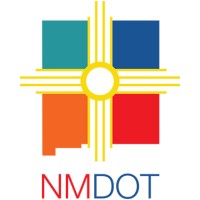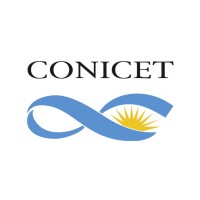
New Mexico Department of Transportation Company Cyber Security Posture
nm.govThe New Mexico Department of Transportation (NMDOT) is an Agency of the State of New Mexico based out of Santa Fe, New Mexico, USA. Our mission is to provide a safe and efficient transportation system for the traveling public, while promoting economic development and preserving the environment of New Mexico. Multimodal transportation choices invigorate the economy and connect people in small towns and cities and facilitate transportation of goods and people to other states and nations. NMDOT focuses on the following modes of travel: transit, rail, aviation and highways. We've strengthened our commitment to traffic safety, environmental excellence, and complete planning, design and engineering services. New Mexico Statehood in 1912 led to the creation of the State Highway Commission, which provided broader powers and duties than the Territorial Commission. These powers and duties included the authority to meet with counties, towns, and villages to plan and advise on road and bridge construction; to provide for testing and development of road materials and experimental road work; to plan and construct a state system of roads; and to create county road boards to transfer all county road and bridge work. By the end of 1912, all 26 county boards were established, and functioning smoothly by 1913.
NMDT Company Details
new-mexico-department-of-transportation
414 employees
1678.0
922
Government Administration
nm.gov
Scan still pending
NEW_1253624
In-progress
Between 900 and 1000
This score is AI-generated and less favored by cyber insurers, who prefer the TPRM score.
 NMDT Global Score
NMDT Global Score.png)

New Mexico Department of Transportation Company Scoring based on AI Models
| Model Name | Date | Description | Current Score Difference | Score |
|---|---|---|---|---|
| AVERAGE-Industry | 03-12-2025 | This score represents the average cybersecurity rating of companies already scanned within the same industry. It provides a benchmark to compare an individual company's security posture against its industry peers. | N/A | Between 900 and 1000 |
New Mexico Department of Transportation Company Cyber Security News & History
| Entity | Type | Severity | Impact | Seen | Url ID | Details | View |
|---|---|---|---|---|---|---|---|
| New Mexico Department of Transportation | Cyber Attack | 100 | 6 | 11/2022 | NEW020121122 | Link | |
Rankiteo Explanation : Attack threatening the economy of a geographical regionDescription: Mexico’s transportation ministry was a victim of cyberattack. They have stopped issuing new permits, license plates and driver’s licenses for commercial truck operators until Dec. 31 creating possible delays for transporters. The malicious software attack did not damage the agency’s systems or compromise the personal data of citizens. | |||||||
New Mexico Department of Transportation Company Subsidiaries

The New Mexico Department of Transportation (NMDOT) is an Agency of the State of New Mexico based out of Santa Fe, New Mexico, USA. Our mission is to provide a safe and efficient transportation system for the traveling public, while promoting economic development and preserving the environment of New Mexico. Multimodal transportation choices invigorate the economy and connect people in small towns and cities and facilitate transportation of goods and people to other states and nations. NMDOT focuses on the following modes of travel: transit, rail, aviation and highways. We've strengthened our commitment to traffic safety, environmental excellence, and complete planning, design and engineering services. New Mexico Statehood in 1912 led to the creation of the State Highway Commission, which provided broader powers and duties than the Territorial Commission. These powers and duties included the authority to meet with counties, towns, and villages to plan and advise on road and bridge construction; to provide for testing and development of road materials and experimental road work; to plan and construct a state system of roads; and to create county road boards to transfer all county road and bridge work. By the end of 1912, all 26 county boards were established, and functioning smoothly by 1913.
Access Data Using Our API

Get company history
.png)
NMDT Cyber Security News
Attorney General Bonta Sues U.S. Departments of Transportation and Homeland Security Over Illegal Immigration Enforcement Conditions on Grant Funding
OAKLAND – California Attorney General Rob Bonta today filed two lawsuits challenging the Trump Administration's effort to unlawfully impose ...
REAL ID Frequently Asked Questions
Frequently asked questions and answers regarding the implementation of the REAL ID Act. The REAL ID Act, passed by Congress in 2005, enacted the 9/11 ...
DECEMBER HOLIDAY FACT SHEET: Biden-Harris Administration Efforts to Ensure Air Travel is Safe, Efficient, and Fair
Created a new rule to protect airline passengers with disabilities. The rule requires airlines to meet more rigorous new standards for ...
FHWA disburses nearly $17M for contech programs
A federal grant funded projects in eight states to accurately monitor data, establish new workflows and integrate BIM. Published Nov.
Ensuring data security to achieve zero trust
Please register using the form on this page. Have questions or need help? Visit our Q&A page for answers to common questions or to reach a member of our team.
WIPP Achievement: Waste Transportation Exceeds 17 Million Safe Miles
The U.S. Department of Energy Office of Environmental Management's Waste Isolation Pilot Plant recently announced a major accomplishment in ...
How Will the Trump Administration Handle Quantum Policy?
Tech leaders are calling on the new administration to revisit quantum efforts as the president develops new visions for technology.
Which Federal Programs Are Under Scrutiny? The Budget Office Named 2,600 of Them.
We identified programs in the OMB instructions by their assistance listing number, then used program titles and obligation totals for the most recent complete ...
Florida names cyber chief as new CIO
Florida has named Warren Sponholtz, who most recently served as deputy chief information security officer at the Florida Digital Service, as the ...

NMDT Similar Companies

Egyptian Customs Authority
We are working to provide excellent customs service in the field of legitimate trade according to the latest international practices that is characterized by quality, leadership, justice and satisfaction of customers and employees. We also work to make the necessary legislative amendments to achieve

Agencia de Recaudación y Control Aduanero
La Administración Federal de Ingresos Públicos es el ente encargado de ejecutar las políticas impulsadas por el Poder Ejecutivo Nacional en materia tributaria, aduanera y de recaudación de los recursos de la seguridad social. Este organismo creado en el año 1997 (Decreto 618/1997) está inte

CONICET
El Consejo Nacional de Investigaciones Científicas y Técnicas (CONICET) es el principal organismo dedicado a la promoción de la ciencia y la tecnología en la Argentina. Su actividad se desarrolla en cuatro grandes áreas: • Ciencias agrarias, ingeniería y de materiales • Ciencias biológica

U.S. Department of Veterans Affairs
Welcome to the United States Department of Veterans Affairs (VA) Official LinkedIn page. We're recruiting the finest employees to care for our #Veterans. Following/engagement ≠ signify VA endorsement. This is a moderated page, meaning that all comments will be reviewed for appropriate content. Ple

Consejo Nacional Electoral
Definición: El Consejo Nacional Electoral es el ente rector del Poder Electoral, responsable de la transparencia de los procesos electorales y refrendarios; garantiza a los venezolanos la eficiente organización de todos los actos electorales que se realicen en el país y en particular, la claridad

Belastingdienst
De organisatie bestaat uit diverse onderdelen, waaronder de Belastingdienst, Douane, Toeslagen, FIOD en enkele facilitaire organisaties. Met ruim 30.000 medewerkers werken we in kantoren die verspreid zijn over het hele land. Gezamenlijk heffen, innen en controleren we belastingen. Daarnaast zorgen

Frequently Asked Questions (FAQ) on Cybersecurity Incidents
NMDT CyberSecurity History Information
Total Incidents: According to Rankiteo, NMDT has faced 1 incidents in the past.
Incident Types: The types of cybersecurity incidents that have occurred include ['Cyber Attack'].
Total Financial Loss: The total financial loss from these incidents is estimated to be {total_financial_loss}.
Cybersecurity Posture: The company's overall cybersecurity posture is described as The New Mexico Department of Transportation (NMDOT) is an Agency of the State of New Mexico based out of Santa Fe, New Mexico, USA. Our mission is to provide a safe and efficient transportation system for the traveling public, while promoting economic development and preserving the environment of New Mexico. Multimodal transportation choices invigorate the economy and connect people in small towns and cities and facilitate transportation of goods and people to other states and nations. NMDOT focuses on the following modes of travel: transit, rail, aviation and highways. We've strengthened our commitment to traffic safety, environmental excellence, and complete planning, design and engineering services. New Mexico Statehood in 1912 led to the creation of the State Highway Commission, which provided broader powers and duties than the Territorial Commission. These powers and duties included the authority to meet with counties, towns, and villages to plan and advise on road and bridge construction; to provide for testing and development of road materials and experimental road work; to plan and construct a state system of roads; and to create county road boards to transfer all county road and bridge work. By the end of 1912, all 26 county boards were established, and functioning smoothly by 1913..
Detection and Response: The company detects and responds to cybersecurity incidents through {description_of_detection_and_response_process}.
Incident Details
Incident 1: Ransomware Attack
Title: {Incident_Title}
Description: {Brief_description_of_the_incident}
Date Detected: {Detection_Date}
Date Publicly Disclosed: {Disclosure_Date}
Date Resolved: {Resolution_Date}
Type: {Type_of_Attack}
Attack Vector: {Attack_Vector}
Vulnerability Exploited: {Vulnerability}
Threat Actor: {Threat_Actor}
Motivation: {Motivation}
Incident 2: Data Breach
Title: {Incident_Title}
Description: {Brief_description_of_the_incident}
Date Detected: {Detection_Date}
Date Publicly Disclosed: {Disclosure_Date}
Date Resolved: {Resolution_Date}
Type: {Type_of_Attack}
Attack Vector: {Attack_Vector}
Vulnerability Exploited: {Vulnerability}
Threat Actor: {Threat_Actor}
Motivation: {Motivation}
Common Attack Types: As of now, the company has not encountered any reported incidents involving common cyberattacks.
Identification of Attack Vectors: The company identifies the attack vectors used in incidents through {description_of_identification_process}.
Impact of the Incidents
Incident 1: Ransomware Attack
Financial Loss: {Financial_Loss}
Data Compromised: {Data_Compromised}
Systems Affected: {Systems_Affected}
Downtime: {Downtime}
Operational Impact: {Operational_Impact}
Conversion Rate Impact: {Conversion_Rate_Impact}
Revenue Loss: {Revenue_Loss}
Customer Complaints: {Customer_Complaints}
Brand Reputation Impact: {Brand_Reputation_Impact}
Legal Liabilities: {Legal_Liabilities}
Identity Theft Risk: {Identity_Theft_Risk}
Payment Information Risk: {Payment_Information_Risk}
Incident 2: Data Breach
Financial Loss: {Financial_Loss}
Data Compromised: {Data_Compromised}
Systems Affected: {Systems_Affected}
Downtime: {Downtime}
Operational Impact: {Operational_Impact}
Conversion Rate Impact: {Conversion_Rate_Impact}
Revenue Loss: {Revenue_Loss}
Customer Complaints: {Customer_Complaints}
Brand Reputation Impact: {Brand_Reputation_Impact}
Legal Liabilities: {Legal_Liabilities}
Identity Theft Risk: {Identity_Theft_Risk}
Payment Information Risk: {Payment_Information_Risk}
Average Financial Loss: The average financial loss per incident is {average_financial_loss}.
Commonly Compromised Data Types: The types of data most commonly compromised in incidents are {list_of_commonly_compromised_data_types}.
Incident 1: Ransomware Attack
Entity Name: {Entity_Name}
Entity Type: {Entity_Type}
Industry: {Industry}
Location: {Location}
Size: {Size}
Customers Affected: {Customers_Affected}
Incident 2: Data Breach
Entity Name: {Entity_Name}
Entity Type: {Entity_Type}
Industry: {Industry}
Location: {Location}
Size: {Size}
Customers Affected: {Customers_Affected}
Response to the Incidents
Incident 1: Ransomware Attack
Incident Response Plan Activated: {Yes/No}
Third Party Assistance: {Yes/No}
Law Enforcement Notified: {Yes/No}
Containment Measures: {Containment_Measures}
Remediation Measures: {Remediation_Measures}
Recovery Measures: {Recovery_Measures}
Communication Strategy: {Communication_Strategy}
Adaptive Behavioral WAF: {Adaptive_Behavioral_WAF}
On-Demand Scrubbing Services: {On_Demand_Scrubbing_Services}
Network Segmentation: {Network_Segmentation}
Enhanced Monitoring: {Enhanced_Monitoring}
Incident 2: Data Breach
Incident Response Plan Activated: {Yes/No}
Third Party Assistance: {Yes/No}
Law Enforcement Notified: {Yes/No}
Containment Measures: {Containment_Measures}
Remediation Measures: {Remediation_Measures}
Recovery Measures: {Recovery_Measures}
Communication Strategy: {Communication_Strategy}
Adaptive Behavioral WAF: {Adaptive_Behavioral_WAF}
On-Demand Scrubbing Services: {On_Demand_Scrubbing_Services}
Network Segmentation: {Network_Segmentation}
Enhanced Monitoring: {Enhanced_Monitoring}
Incident Response Plan: The company's incident response plan is described as {description_of_incident_response_plan}.
Third-Party Assistance: The company involves third-party assistance in incident response through {description_of_third_party_involvement}.
Data Breach Information
Incident 2: Data Breach
Type of Data Compromised: {Type_of_Data}
Number of Records Exposed: {Number_of_Records}
Sensitivity of Data: {Sensitivity_of_Data}
Data Exfiltration: {Yes/No}
Data Encryption: {Yes/No}
File Types Exposed: {File_Types}
Personally Identifiable Information: {Yes/No}
Prevention of Data Exfiltration: The company takes the following measures to prevent data exfiltration: {description_of_prevention_measures}.
Handling of PII Incidents: The company handles incidents involving personally identifiable information (PII) through {description_of_handling_process}.
Ransomware Information
Incident 1: Ransomware Attack
Ransom Demanded: {Ransom_Amount}
Ransom Paid: {Ransom_Paid}
Ransomware Strain: {Ransomware_Strain}
Data Encryption: {Yes/No}
Data Exfiltration: {Yes/No}
Ransom Payment Policy: The company's policy on paying ransoms in ransomware incidents is described as {description_of_ransom_payment_policy}.
Data Recovery from Ransomware: The company recovers data encrypted by ransomware through {description_of_data_recovery_process}.
Regulatory Compliance
Incident 1: Ransomware Attack
Regulations Violated: {Regulations_Violated}
Fines Imposed: {Fines_Imposed}
Legal Actions: {Legal_Actions}
Regulatory Notifications: {Regulatory_Notifications}
Incident 2: Data Breach
Regulations Violated: {Regulations_Violated}
Fines Imposed: {Fines_Imposed}
Legal Actions: {Legal_Actions}
Regulatory Notifications: {Regulatory_Notifications}
Regulatory Frameworks: The company complies with the following regulatory frameworks regarding cybersecurity: {list_of_regulatory_frameworks}.
Ensuring Regulatory Compliance: The company ensures compliance with regulatory requirements through {description_of_compliance_measures}.
Lessons Learned and Recommendations
Incident 1: Ransomware Attack
Lessons Learned: {Lessons_Learned}
Incident 2: Data Breach
Lessons Learned: {Lessons_Learned}
Incident 1: Ransomware Attack
Recommendations: {Recommendations}
Incident 2: Data Breach
Recommendations: {Recommendations}
Key Lessons Learned: The key lessons learned from past incidents are {list_of_key_lessons_learned}.
Implemented Recommendations: The company has implemented the following recommendations to improve cybersecurity: {list_of_implemented_recommendations}.
References
Additional Resources: Stakeholders can find additional resources on cybersecurity best practices at {list_of_additional_resources}.
Investigation Status
Incident 1: Ransomware Attack
Investigation Status: {Investigation_Status}
Incident 2: Data Breach
Investigation Status: {Investigation_Status}
Communication of Investigation Status: The company communicates the status of incident investigations to stakeholders through {description_of_communication_process}.
Stakeholder and Customer Advisories
Incident 1: Ransomware Attack
Stakeholder Advisories: {Stakeholder_Advisories}
Customer Advisories: {Customer_Advisories}
Incident 2: Data Breach
Stakeholder Advisories: {Stakeholder_Advisories}
Customer Advisories: {Customer_Advisories}
Advisories Provided: The company provides the following advisories to stakeholders and customers following an incident: {description_of_advisories_provided}.
Initial Access Broker
Incident 1: Ransomware Attack
Entry Point: {Entry_Point}
Reconnaissance Period: {Reconnaissance_Period}
Backdoors Established: {Backdoors_Established}
High Value Targets: {High_Value_Targets}
Data Sold on Dark Web: {Yes/No}
Incident 2: Data Breach
Entry Point: {Entry_Point}
Reconnaissance Period: {Reconnaissance_Period}
Backdoors Established: {Backdoors_Established}
High Value Targets: {High_Value_Targets}
Data Sold on Dark Web: {Yes/No}
Monitoring and Mitigation of Initial Access Brokers: The company monitors and mitigates the activities of initial access brokers through {description_of_monitoring_and_mitigation_measures}.
Post-Incident Analysis
Incident 1: Ransomware Attack
Root Causes: {Root_Causes}
Corrective Actions: {Corrective_Actions}
Incident 2: Data Breach
Root Causes: {Root_Causes}
Corrective Actions: {Corrective_Actions}
Post-Incident Analysis Process: The company's process for conducting post-incident analysis is described as {description_of_post_incident_analysis_process}.
Corrective Actions Taken: The company has taken the following corrective actions based on post-incident analysis: {list_of_corrective_actions_taken}.
Additional Questions
General Information
Ransom Payment History: The company has {paid/not_paid} ransoms in the past.
Last Ransom Demanded: The amount of the last ransom demanded was {last_ransom_amount}.
Last Attacking Group: The attacking group in the last incident was {last_attacking_group}.
Incident Details
Most Recent Incident Detected: The most recent incident detected was on {most_recent_incident_detected_date}.
Most Recent Incident Publicly Disclosed: The most recent incident publicly disclosed was on {most_recent_incident_publicly_disclosed_date}.
Most Recent Incident Resolved: The most recent incident resolved was on {most_recent_incident_resolved_date}.
Impact of the Incidents
Highest Financial Loss: The highest financial loss from an incident was {highest_financial_loss}.
Most Significant Data Compromised: The most significant data compromised in an incident was {most_significant_data_compromised}.
Most Significant System Affected: The most significant system affected in an incident was {most_significant_system_affected}.
Response to the Incidents
Third-Party Assistance in Most Recent Incident: The third-party assistance involved in the most recent incident was {third_party_assistance_in_most_recent_incident}.
Containment Measures in Most Recent Incident: The containment measures taken in the most recent incident were {containment_measures_in_most_recent_incident}.
Data Breach Information
Most Sensitive Data Compromised: The most sensitive data compromised in a breach was {most_sensitive_data_compromised}.
Number of Records Exposed: The number of records exposed in the most significant breach was {number_of_records_exposed}.
Ransomware Information
Highest Ransom Demanded: The highest ransom demanded in a ransomware incident was {highest_ransom_demanded}.
Highest Ransom Paid: The highest ransom paid in a ransomware incident was {highest_ransom_paid}.
Regulatory Compliance
Highest Fine Imposed: The highest fine imposed for a regulatory violation was {highest_fine_imposed}.
Most Significant Legal Action: The most significant legal action taken for a regulatory violation was {most_significant_legal_action}.
Lessons Learned and Recommendations
Most Significant Lesson Learned: The most significant lesson learned from past incidents was {most_significant_lesson_learned}.
Most Significant Recommendation Implemented: The most significant recommendation implemented to improve cybersecurity was {most_significant_recommendation_implemented}.
References
Most Recent Source: The most recent source of information about an incident is {most_recent_source}.
Most Recent URL for Additional Resources: The most recent URL for additional resources on cybersecurity best practices is {most_recent_url}.
Investigation Status
Current Status of Most Recent Investigation: The current status of the most recent investigation is {current_status_of_most_recent_investigation}.
Stakeholder and Customer Advisories
Most Recent Stakeholder Advisory: The most recent stakeholder advisory issued was {most_recent_stakeholder_advisory}.
Most Recent Customer Advisory: The most recent customer advisory issued was {most_recent_customer_advisory}.
Initial Access Broker
Most Recent Entry Point: The most recent entry point used by an initial access broker was {most_recent_entry_point}.
Most Recent Reconnaissance Period: The most recent reconnaissance period for an incident was {most_recent_reconnaissance_period}.
Post-Incident Analysis
Most Significant Root Cause: The most significant root cause identified in post-incident analysis was {most_significant_root_cause}.
Most Significant Corrective Action: The most significant corrective action taken based on post-incident analysis was {most_significant_corrective_action}.
What Do We Measure?
















Every week, Rankiteo analyzes billions of signals to give organizations a sharper, faster view of emerging risks. With deeper, more actionable intelligence at their fingertips, security teams can outpace threat actors, respond instantly to Zero-Day attacks, and dramatically shrink their risk exposure window.
These are some of the factors we use to calculate the overall score:
Identify exposed access points, detect misconfigured SSL certificates, and uncover vulnerabilities across the network infrastructure.
Gain visibility into the software components used within an organization to detect vulnerabilities, manage risk, and ensure supply chain security.
Monitor and manage all IT assets and their configurations to ensure accurate, real-time visibility across the company's technology environment.
Leverage real-time insights on active threats, malware campaigns, and emerging vulnerabilities to proactively defend against evolving cyberattacks.




